Description
THE NEW YORK TIMES BESTSELLER • Foreword by Malcolm Gladwell
Limits are an illusion: discover the revolutionary account of the science and psychology of endurance, revealing the secrets of reaching the hidden extra potential within us all.
“A voyage to the outer reaches of human capacity.” —David Epstein, author of Range
“Reveals how we can all surpass our perceived physical limits.” —Adam Grant
The capacity to endure is the key trait that underlies great performance in virtually every field. But what if we all can go farther, push harder, and achieve more than we think we’re capable of?
Blending cutting-edge science and gripping storytelling in the spirit of Malcolm Gladwell—who contributes the book’s foreword—award-winning journalist Alex Hutchinson reveals that a wave of paradigm-altering research over the past decade suggests the seemingly physical barriers you encounter as set as much by your brain as by your body. This means the mind is the new frontier of endurance—and that the horizons of performance are much more elastic than we once thought.
But, of course, it’s not “all in your head.” For each of the physical limits that Hutchinson explores—pain, muscle, oxygen, heat, thirst, fuel—he carefully disentangles the delicate interplay of mind and body by telling the riveting stories of men and women who’ve pushed their own limits in extraordinary ways.
The longtime “Sweat Science” columnist for Outside and Runner’s World, Hutchinson, a former national-team long-distance runner and Cambridge-trained physicist, was one of only two reporters granted access to Nike’s top-secret training project to break the two-hour marathon barrier, an extreme quest he traces throughout the book. But the lessons he draws from shadowing elite athletes and from traveling to high-tech labs around the world are surprisingly universal. Endurance, Hutchinson writes, is “the struggle to continue against a mounting desire to stop”—and we’re always capable of pushing a little farther.
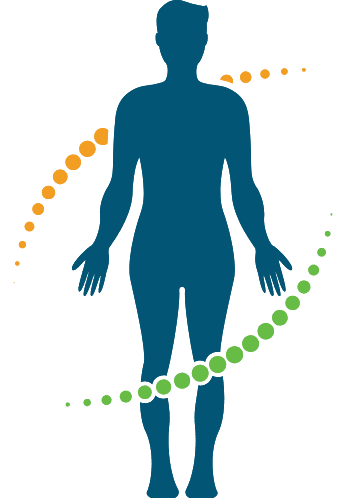
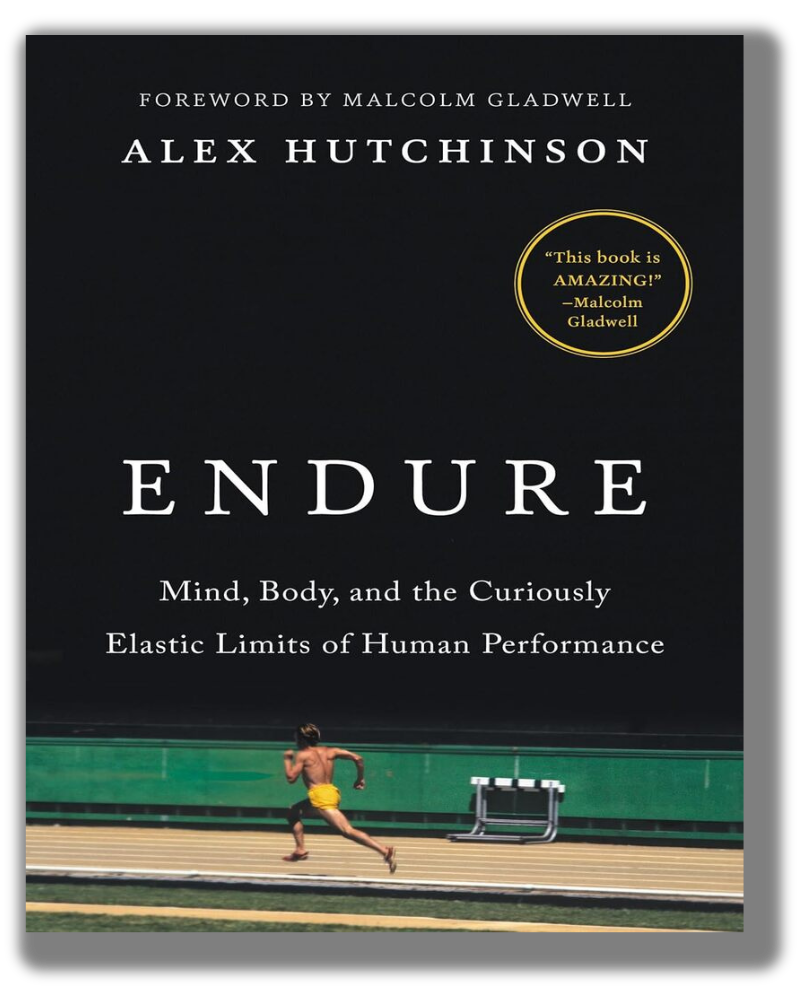
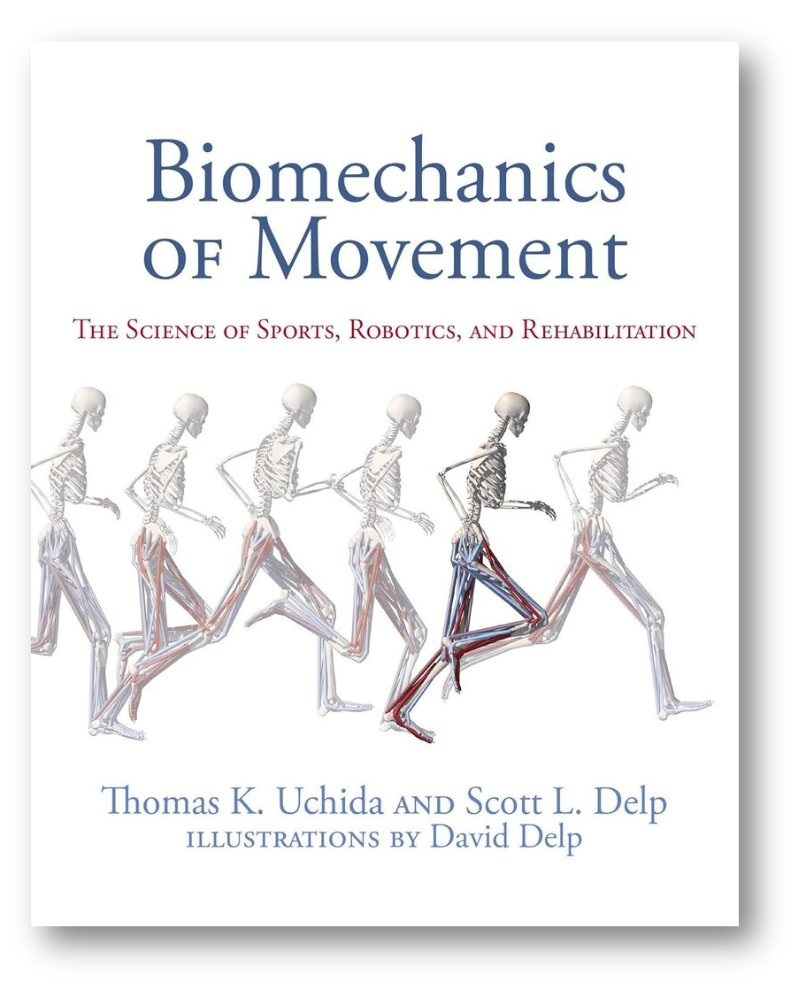
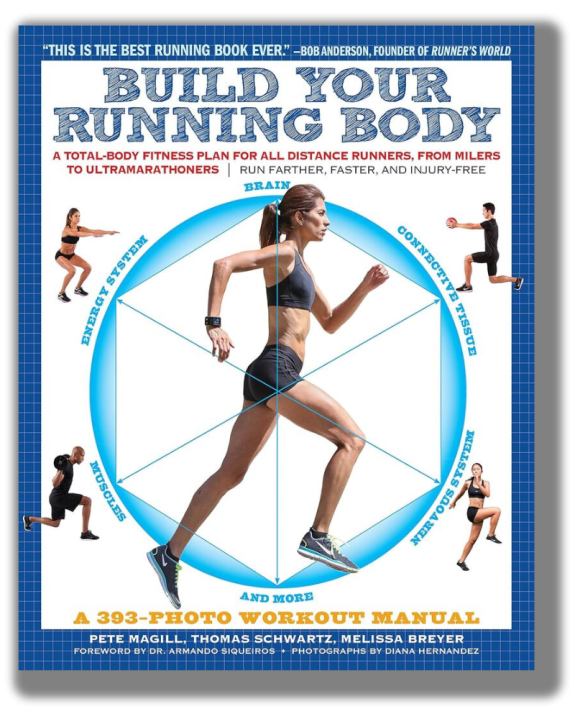
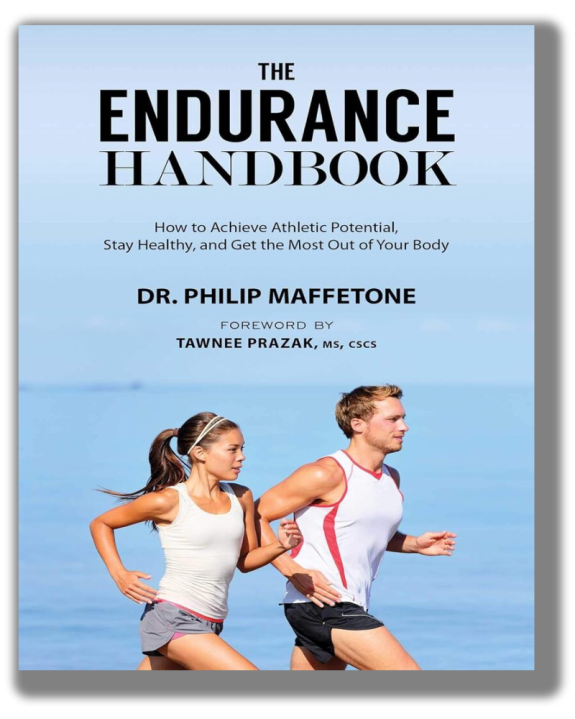
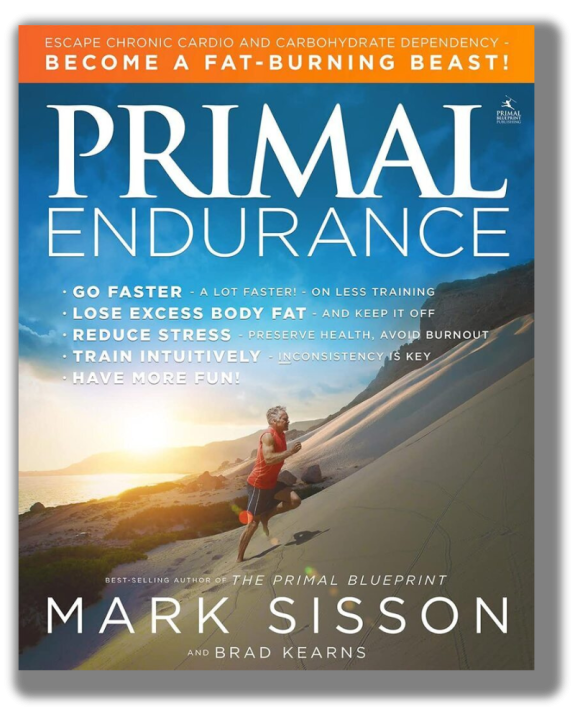
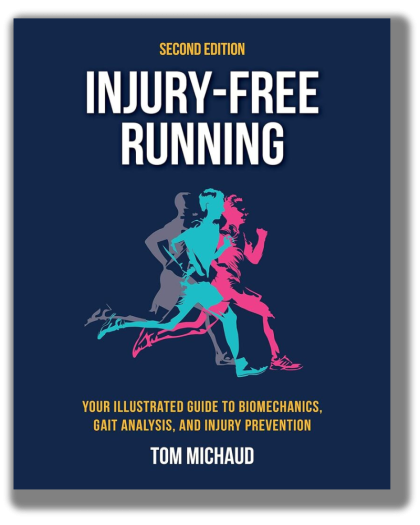
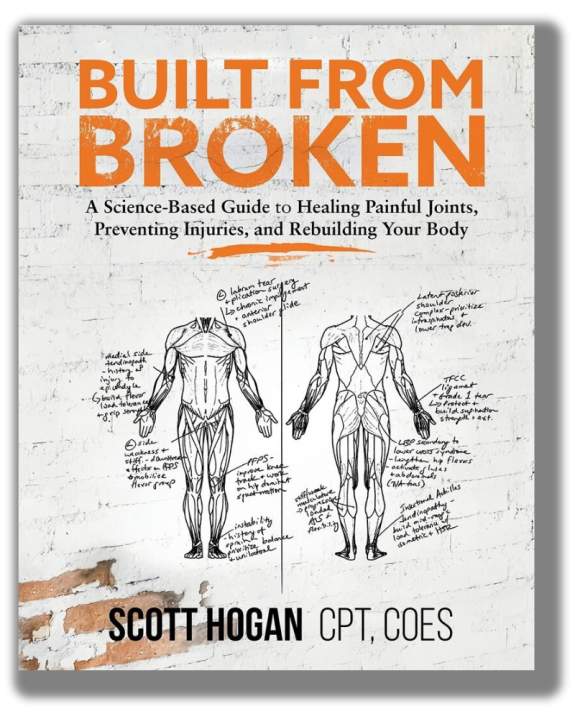
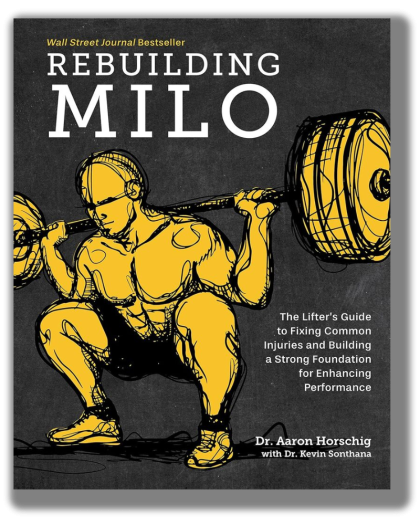

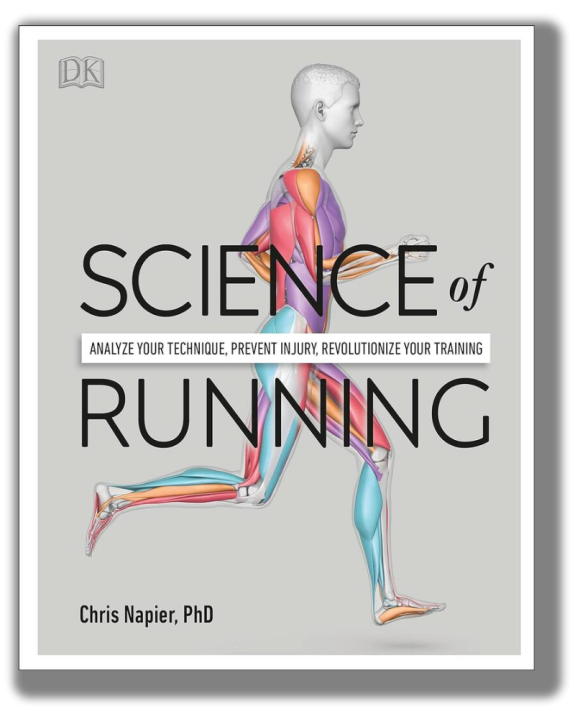
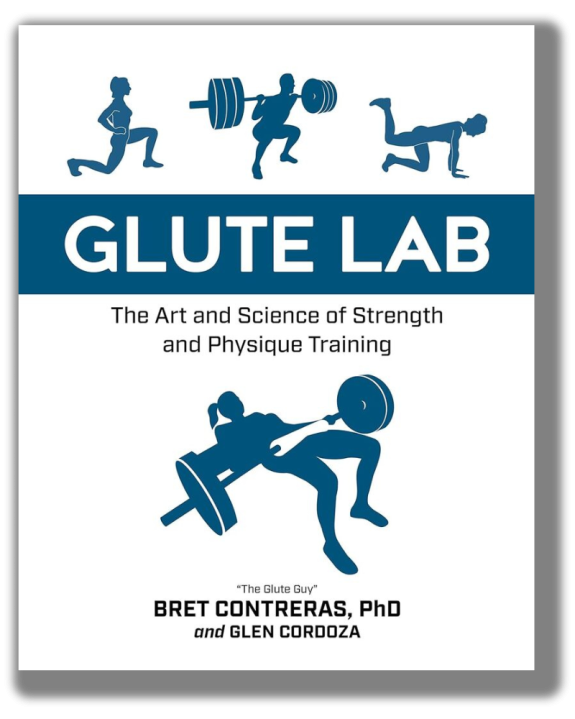
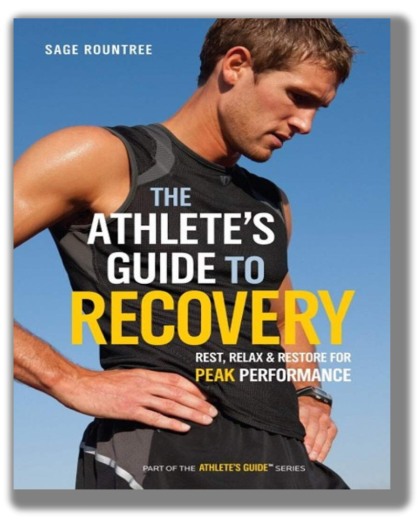
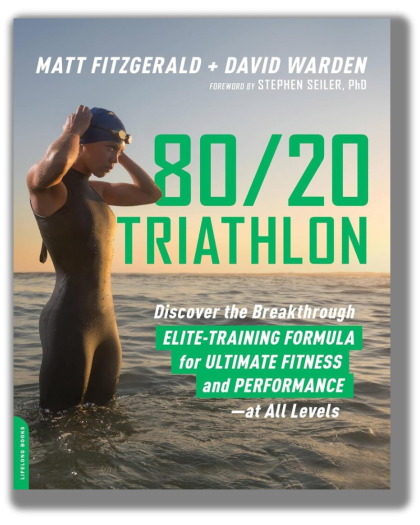
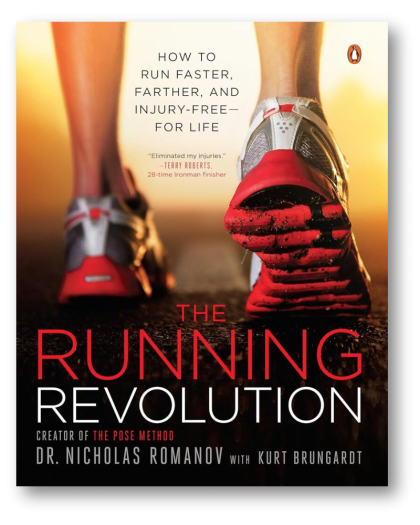
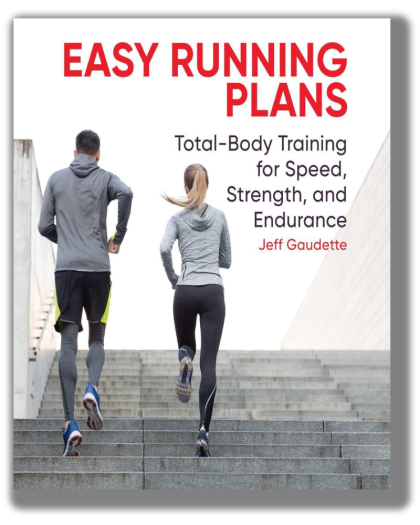
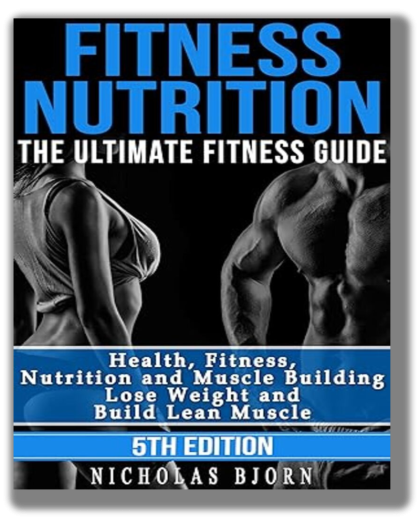
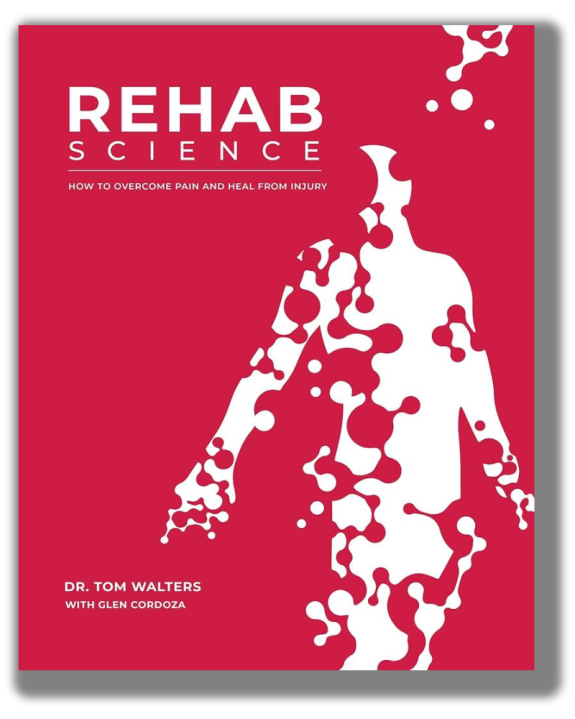
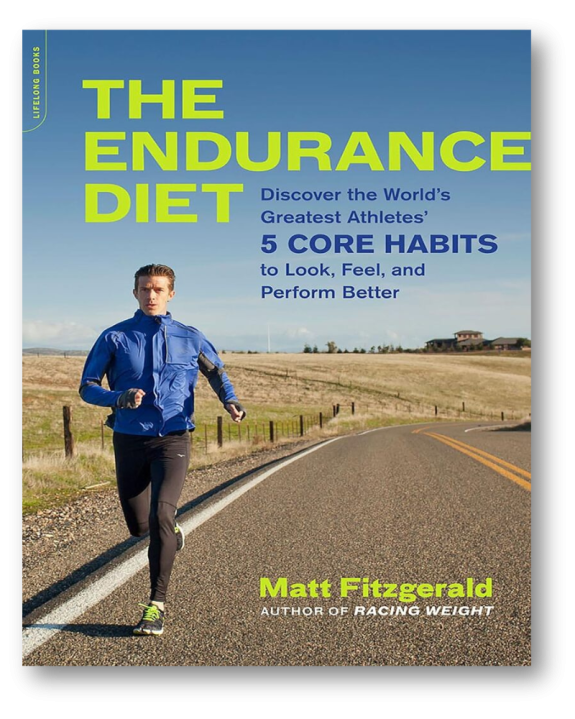
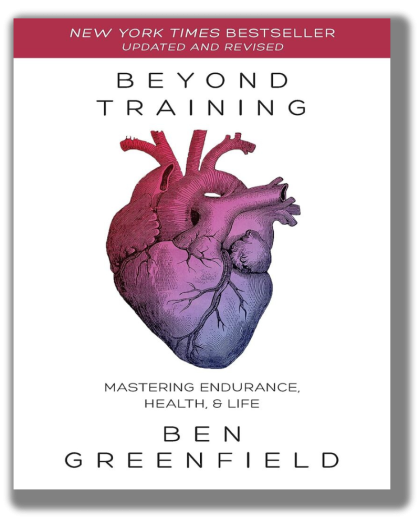
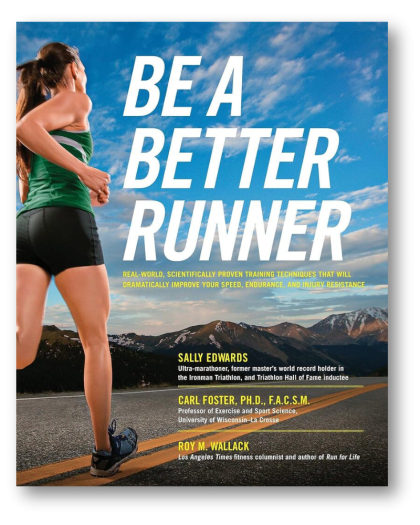
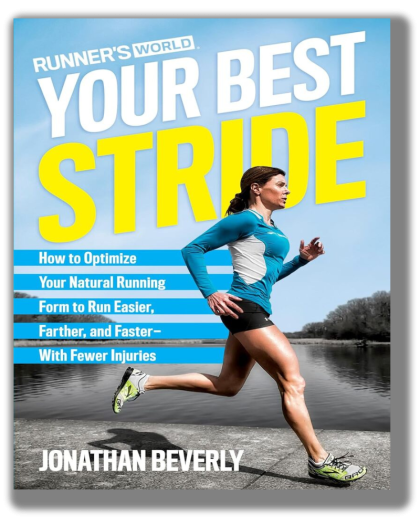
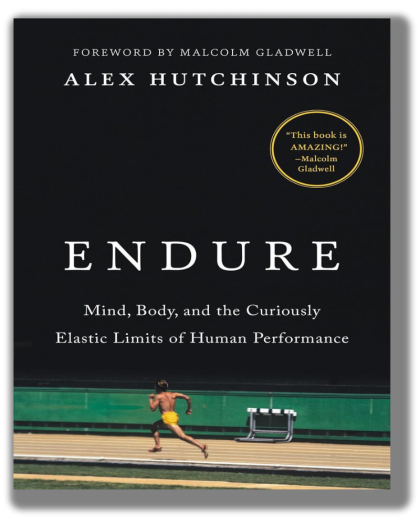
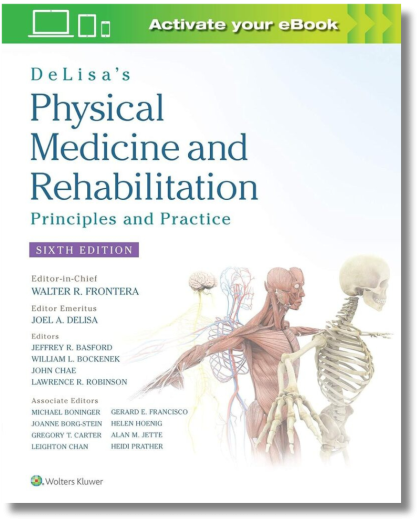

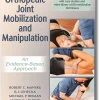
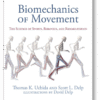
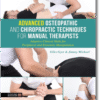
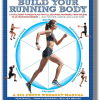
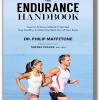
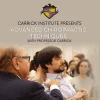
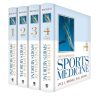


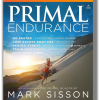
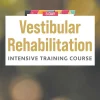
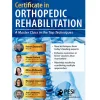
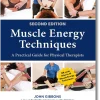
Michael Wood, CSCS, PN1<span class="a-icon a-profile-verified-badge"><span class="a-profile-verified-text"></span></span> (verified owner) –
This book is an amazing read that looks at the interplay between the physiological and psychological aspects of human performance. It needs to be the next book that you read. The author spent many years researching and writing this epic book and it shows in every page you turn. It’s one of those books you just can’t seem to put down and once you’re through the process you’ll end up knowing more about the inner workings of your own mind & body than you ever thought possible.
Justin T (verified owner) –
As a recreationer runner, it’s often overwhelming to sort through all of the fitness advice out there. Endure helped a ton in understanding how the human body reacts to different conditions and stimulus and as much as I learned from the interesting stories and advanced science discussed in the book, I also took away a lot that I can apply to my own fitness. For example, the section about sport drinks and mid-race carbs was something I have always wondered about. Highly recommended!
Jagjit Singh (verified owner) –
This is a great book. He breaks it down into the different parts involved (brain, lactic acid etc.) and analyzes its effect on different activities e.g. long distance running, cycling etc. The conclusion was surprising, to say the least. He quotes Mayo Clinic physiologist Michael Joyner,
“Run a lot of miles
Some faster than your race pace
Rest once in a while”.
Clearly, this book is un-put-downable.
stingray (verified owner) –
First the positives: I am a runner and I wanted to find the secrets of increasing my endurance-Hutchinson’s book made me more aware of my running while reading it and when I ran. He gives studies after studies(too many in my opinion-later on that) on pain, muscle, heat,thirst, oxygen and beliefs. Many of the studies make the point that there have been so many of endurance feats in history. The famous ones like a mom raising a three thousands pounds car to save their baby or explorers traveling miles and miles without food or water. We all have that super power -a hidden reserve when the times comes with your beliefs that you can do it. The brain controls your body train the brain with self motivating talk and believe it can be done.
The negatives : it reads like a PHD dissertation,studies after studies and after while is a little
too much. Is not reader friendly- I love books that in the end summarize all the points (I read 300 pages so what does it all means, tied it with a nice bow.) He ends with questions rather then answers. And the one answer he gives is -its all in your head.
Is that the secret to increase my endurance?
Robert Yerex (verified owner) –
I worked for a time in the Nike Sports Research Lab where we studied some of the concepts that the author describes in detail. This book is the most thoughtful, complete, and engaging I have read on the subject of endurance and the mind. Now if I can just remember next time I’m at the 120 mile mark of the Tuscobia Winter Ultra…
Phyllis Cory (verified owner) –
Not finished reading this book yet, but every page has held my interest. When I finish reading, I intend to share the book with my daughters who are marathon runners and with my granddaughter who is a high school champion runner My granddaughter who competes with the Wings of America team will find great value in these pages. The snowflake generation would also find excellent life tips herein.
Physioz (verified owner) –
A fascinating read! The author, a contributor to numerous science-related exercise blogs, has condensed, combined, and then simplified the results of hundreds of scientific studies into an enlightening read on the effects of the interplay between physiological processes and human behaviour on human performance; especially, extreme performance.
This book is not for everyone. If your bent is more towards ‘broscience’ or interesting but completely untested anecdote; or, you’re looking for a simple guide to improve your performance – it’s not for you. For those who may be interested in a fascinating analysis of the often incredible limits to human performance (and not just in running performance) – this is THE book you need to read.
A. Ghent (verified owner) –
I thoroughly enjoyed reading this book. The science is solid and intriguing. The stories about human endurance are really what makes it a compelling read though. Everything from Shackleton’s Antarctic miracle (Google “Endurance Shackleton” if you don’t know the story) to the Nike Sub2 attempt. It is not at all heavy but the author does not gloss over the more technical aspects of the research he is reporting on. I picked it up because I heard it on a running podcast but I think non-runners and even non-athletes would really appreciate this book.
ARG (verified owner) –
Outstanding and objective summary of the “science” behind athletic endurance. Highly recommend to anyone that is active or interested in mind/body questions. It’s an engaging read. That said it is not a work of entertainment. One of the strengths is the author is careful and objective in reviewing and discussing points and perspectives. It reflects perhaps his background / training as a scientist. In the end you get what I assume is a pretty thorough and faithful summary of “what we know” and “what we don’t understand” about how our mind / body interacts to govern our physical limits. Great stuff.
jules (verified owner) –
This book explores what defines endurance. Is it physical, psychological or something else? It looks at a lot of different aspects whether it relates to cycling, running, free diving or many other activities. It is super informative and promotes thinking as it could pertain to the reader. The writing is really good and presents the information in a great delivery.
Enrique Maroto (verified owner) –
What is Endurance? What are its Components? How Can I Influence Endurance?
Hutchison’s book is a well crafted story of endurance. Told through the eye of a trained journalist and runner, not only does Hutchison explains endurance, he transmits his passion for passion it.
Written with passion, the stories and reports behind endurance will make you ponder about your physical limits
Justin G. Mitchell (verified owner) –
I really enjoyed this book by Alex. I know him from Outside magazine and heard him interviewed on a running podcast, discussing the topics covered in Endure. This is really well written and engaging, filled with stories about amazing feats of endurance and the science behind them.
This book has a lot to offer those who aren’t familiar with the mind-body connection and sports performance. Lots of tips and ideas to be gleaned from the pages.
J. LIANG (verified owner) –
Anyone interested in endurance sports–or in the topic of physical stamina more broadly–should pick up a copy of Dr. Hutchinson’s first book. It’s highly informative and full of wisdom, as well as science, about the extraordinary connection between the mind and body.
I only hesitate to give it more than four stars because it was a bit academic where it could have been more journalistic. Alex writes like a true doctoral student, always quick to back hypotheses with scientific proof. Ironically, the science isn’t always compelling when it comes to theories like the “central regulator,” and I was left wanting more storytelling and less scholasticism.
Overall, though, a fantastic read!
Deedi Brown (verified owner) –
I read Endure as part of The Next Big Idea Club with Malcolm Gladwell, Adam Grant, Daniel Pink, and Susan Cain. It was very, very interesting, and one of those books that I may not have otherwise picked up but am glad I did. Alex Hutchinson presents a thorough view of the different theories and research about human endurance (is it physical or mental?), weaving stories about real athletes into each chapter to keep you engaged and intrigued.
These stories and anecdotes really made the book for me. For example, the chapter on heat used the story of Max Gilpin, a high school football player whose death from heat stroke attracted national attention. The chapter on belief used Reid Coolsaet, a marathon runner who threw his careful planning to the wind and decided to try to keep up with the leaders right out of the gate. We were introduced to Reid at the beginning of the chapter and didn’t get to learn his outcome until the end. Stories like this, weaved in so masterfully, helped it read more like a novel.
I also learned a ton of interesting things. I run casually—5 and 10k races, nothing too crazy and certainly nothing close to the 2-hour marathoners mentioned throughout—so I did have a bit of personal experience to help me relate to what he was describing. As I read, I’d routinely set the book down, turn to my husband, and say “Did you know…?!”
If you’re looking for a good nonfiction book to broaden your view of the world and learn something new that you might otherwise never have known, this is a great choice.
Lloyd Theta (verified owner) –
I’m a Masters swimmer and have been stuck in a rut with my pace time. This helped me think about the mental as well as the physical and I’ve been feeling less tortured as I’m grinding out the laps, especially endurance sets. I ended up buying a copy for my coach, my husband (a runner) read it and then recommended it to his two brothers; we also got an acquaintance who is a professional triathlete to read it. What I liked best was how I could use it as a reference list – I was taken with the Sports Illustrated article about the runner in Costa Rica – I never would have come across that on my own. I also went back and read Endurance about Shackleton. It’s not perfect, after citing studies, he repetitively uses the phrase “Sure enough”, but overall, he’s a great storyteller and I loved how the whole book was framed around the idea of the 2 hour marathon. I can see myself reading this again. His passion for his subject shines through and I liked the insider access to the Nike and Red Bull research.
Hugh Hacking (verified owner) –
This is a superb book. It is very well written. Alex Hutchinson’s scientific knowledge and running experience are clearly evident but his expert writing make the technical content very accessible. I particularly enjoyed the fact that the book is right up to date with latest events, including the Nike attempt to break the 2 hour marathon barrier. The science presented in the book is fascinating. This book is suitable for expert as well as amateur athletes interested in understanding or improving their endurance performance.
jkrispies (verified owner) –
This is a very interesting book that is not just for runners. Any athlete who wants to look at improving their performance would be well served by reading this book. It is also very well written so that it held my interest through the entire read and kept me coming back for more.
Roberto Rigolin F Lopes (verified owner) –
The interesting thing is that most people DON’T die of exhaustion, Tim Noakes noted in the 1997. Thus starting with the hypothesis that your mind is protecting you from breaking your body. Very good, It is all in your mind. But protection comes with a cost. Your mind is also stopping you from doing the best you can. And that’s the main subject of this book. Alex is compiling the current science developments on human performance (2018 stuff) which includes a great deal of brain training. To make things more dramatic, he sets the book within Nike’s Breaking2 project. He starts making you hear Kipchoge’s strides while running the fastest marathon ever. By consequence you may end up in a full sweat while reading this book.
Ron Immink (verified owner) –
When you read books about leadership, athletes and Navy Seals, you understand that many things are possible with the right mindset. Hence “Endure: Mind, Body and the Curiously Elastic Limits of Human Performance”
Endurance
Reaching the limits of endurance is a concept that seems yawningly obvious until you actually try to explain it. He defines endurance as “the struggle to continue against a mounting desire to stop.” And the mind plays a huge role. However, the brain’s role in endurance is, perhaps, the single most controversial topic in sports science.
Not dead, could have done more
He quotes a coach’s observation about a second-place Olympic marathoner jogging around the track waving his country’s flag. “Do you notice he’s not dead?” he asked. “It means he could have run faster.”
Pacing
Studies have found that we can’t avoid pacing ourselves: your “maximum” force depends on how many reps you think you have left. It also turns out that, whether it is heat or cold, hunger or thirst, or muscles screaming with the supposed poison of “lactic acid,” what matters in many cases is how the brain interprets these distress signals.
Body and mind
With the rise of sophisticated techniques to measure and manipulate the brain, researchers are finally getting a glimpse of what’s happening in our neurons and synapses when we are pushed to our limits. They found that brain and body are fundamentally intertwined, and to understand what defines your limits under any particular set of circumstances you have to consider them both together.
Smiling
The British military has funded studies of computer-based brain training protocols to enhance the endurance of its troops, with startling results. Even subliminal messages can help or hurt your endurance: a picture of a smiling face flashed in 16-millisecond bursts, boosts cycling performance by 12 per cent compared to frowning faces.
Frame of mind
Another British study in 2012 showed that cyclists in a heat chamber went 4 per cent faster when the thermometer was rigged to display a falsely low temperature (26 instead of 32 degrees Celsius). The right frame of mind, in other words, allows you to push beyond your usual temperature limits.
You are operating at 65%
The brain’s task is to protect you. It is a survival machine. Read “Solve for happy“. Which is why pacing instinct is not entirely voluntary: your brain forces you to slow down, long before you’re in real physiological distress. So the brain plays a role in defining the limits of endurance. Most of us can summon about 65 per cent of our theoretical maximum strength.
Switch of the safety switch
For example, the fact that people can dive to three hundred feet or hold their breath for nearly twelve minutes tells us that oxygen’s absolute limits aren’t quite as constrictive as they feel, that we are protected by layer upon layer of reflexive safety mechanisms.
Change the settings
Average strength increases of 26.5 per cent after hypnosis. So the question is how can you change the settings of your brain? Can you gain access to at least some of the emergency reserve of energy that your brain protects? There’s no doubt that some athletes are able to wring more out of their bodies than others, and those who finish with the most in reserve would dearly love to be able to reduce that margin of safety. But is this really a consequence of the brain’s subconscious decision to throttle back muscle recruitment or is it, as a rival brain-centred theory of endurance posits, simply a matter of how badly you want it?
The science of anticipatory regulation
They found that the importance of any underlying physiological signal depends in part on how your brain receives and interprets it. The science of “anticipatory regulation”: getting your brain to use the knowledge that is gathered consciously, like an impending dive or a looming finish line, to activate or deactivate safety mechanisms that are otherwise purely unconscious. Endurance as second stage thinking. Managing a cognitive trait called response inhibition, which involves overriding your initial instinct, as a key.
The other things
That does not mean that you can ignore simple things such as temperature, oxygen, lactate, calories, proteins, fat, dehydration, pain tolerance and mostly effort.
So how do you improve your response inhibition and effort?
Manage perceived exertion
Pain training (apparently pain is fundamentally a subjective, situation-dependent phenomenon)
Train the brain to become more accustomed to mental fatigue
Test your capabilities, whatever you’ve done before, you can do again plus a little more
Create placebo effects
Create lucky charms
Apply acts of random kindness
Use drugs
Apply virtual reality (running against yourself)
Training in resilience
Training in non-judgmental self-awareness
Training in mindfulness
Again performance and mindfulness meet
All the techniques you find in most self-help books. Mind techniques to become a better athlete (or CEO). Teaching athletes that they can do more than they think they can. Knowing that their fiercest opponent will be their own brain’s well-meaning protective circuitry.
In short, there is more in there, if you’re willing to believe it.
Todd Hoskins (verified owner) –
As other reviewers have mentioned there may be other, better books out there but I found much here that I can personally apply. I came to the ultra world late ( I’m 66 ) and do longish cycling rides, maybe 40 hours and 350 miles at a stretch. This book summarizes for me what to expect when at the extreme of my personal endurance and how and when to move through the extremes. The science is understandable and useful as well. Others have said it’s boring and repetitive. That’s probably true if you sit and read it. I have the audio book and listen while doing my remodeling projects – helps pass the time.
elessar89 (verified owner) –
A good read, regardless of what sport or other things interest you. Endurance could be a shopping trip, holding down a stressful job or trying to become a concert pianist. It’s all too easy to quit, when the going gets tough. Reading this book might help you realize that in your darkest hour, it’s always darkest before the dawn. Don’t quit and your dreams might come true.
stephanie foster (verified owner) –
I bought this book for friends who were going through a tough trial of dealing with people as I was. I had no idea it was about running and ultra athletes. I truly learned a lot about nutrition, muscles, and the brain. I hope that all the neuroscientist who move to this type of study look at the brains and muscles of those who do not exercise to this extent and come up with ways that can combat the struggles of brain injury recovery. Whatever they do, good things will come from their test and theories. I have recommended this book to friends in my healthcare circle.
Ken Kardash (verified owner) –
With probably unintentional irony, one of the supposed endorsements on the back cover says something like “if you want to fully experience exhaustion, read this book.” For me, that sums it up nicely. For anyone who has ever wondered about the limits of human performance, this should satisfy your curiosity. In fact, it will drown it in exhaustive, meticulous detail. I learned many interesting things about human physiology. But as the cover suggests, this story is largely from the obsessive, self-absorbed perspective of a competitive runner who willingly pushes his limits. In fact, this systematic examination of every aspect of both physical and mental limits is bookended by the story of the highly contrived, commercially sponsored efforts of ultra-elite marathoners to break the 2 hour time barrier.
To avoid disappointment for those who are looking to understand the survival of ordinary people placed inadvertently in stressful situations, be warned that this is not the main focus here. Granted, there are the inevitable references to Shackleton and the legendary tales of someone lifting a car to save someone trapped underneath. Nor is it about how weekend warriors can boost their performance. Mostly you get one clinical study after another, some bizarrely arcane, as the author consecutively explores the threshold for tolerating stresses such as pain, lack of oxygen, water or food. In other words, nothing that should be a factor in mainstream recreational sports.
The only reason I am not giving it five stars is because of the writing and structure. When you have Malcolm Gladwell providing the Forward, it sets the prose bar pretty high. He mentions he is nowhere near the runner that the author is, but leaves unsaid that the reverse is true for writing. The discourse sometimes gets lost in the trees, debating both sides of every possible issue as if this were an academic discussion. The focus often shifts abruptly and arbitrarily from lab studies to historical anecdotes to the author’s personal amateur running exploits. I found the latter tiresomely distracting and a little difficult to …endure in this otherwise ambitious attempt to cover a fascinating subject.
Stefan (verified owner) –
I kind of dreaded getting through this book but I will say I have referenced it on many occasions since reading it. I can see why it would be very entertaining for an avid runner (which I’m not). The author does take a lot of great scientific research (which is what I found myself referencing) and digests it easy enough for an average reader to understand.
Manuel (verified owner) –
This book is basically a thorough review of the sports science advancements of the last 100 years. The tales of success and tragedy paint a picture of humanity constantly on the search for our limits.this is more than a running book, this is a testament to human drive.
Robert J Sepesy (verified owner) –
What a fun, enjoyable, fascinating read. I listened to a podcast with the author prior to reading this book and almost passed on buying it, thinking that he revealed too many details on the podcast. I was pleasantly surprised to find out that my thinking was way off. Fantastic book, wonderfully written.
M. J. Hibben (verified owner) –
All athletes can relate to this subject. How do you really tap into every last bit of strength your body has? Well written and researched book that held my interest to the end.
Duane Schneider (verified owner) –
I’ve come to know Alex Hutchinson’s writing through his fantastic articles in “Runner’s World.” He had some serious chops as a Canadian runner but he’s equally (if not more) accomplished as a journalist. Hutchinson’s interests tend toward the science-y, geeky side of running, and those interests are on full display in “Endure.” It’s likely I came into the book with a bias, being a distance runner and having heard “Endure” mentioned on various ultra-running podcasts. I assumed the focus would be on long-distance running, but Hutchinson touches on endurance sports of various types, including mountain climbing, cycling, free diving, marathoning, ultra-running, exploration, etc. A real strength of the book is that the author is able to tie these sports together, along with a wealth of scientific findings and summaries of clinical studies, so seamlessly. He moves effortlessly between Nike’s 2-hour marathon project, Roger Bannister’s 4-minute mile, record free diving attempts, Everest ascents, Antarctic treks, and “The Hour” (an all-out one-hour bike sprint that leaves its participants flailing in a pool of their own saddle sores, sweat, and tears). Hutchinson paints such a vivid picture of these efforts that you almost start to struggle for air along with the free diver or mountain climber. A lot of the book is arranged around these limits to human endurance, such as oxygen, heat, and fuel. The book springs to life when Hutchinson is describing mountain ascents or cycling races, but then just as quickly we’re back in the lab for…another study. There were many studies summarized in this book, studies where athletes were poked, prodded, given pills and placebos, denied oxygen, given pure oxygen, denied carbs, given extra carbs, EKGs, and on and on. I tried to keep everything straight, but after awhile it was difficult to determine what I was supposed to take from all this, other than that people often push themselves to the brink of exhaustion but rarely does anyone die due to a “central governor” in the brain that starts shutting things down if we stray too far into dangerous territory. By the time Hutchinson got to the study about the cyclists shown a video of an Asian woman who forces herself to vomit and then eats it, I was ready to be done with studies. I think Hutchinson accomplished what he set out to do, which was to provide a survey of various extreme endurance achievements and explain the science behind them, and despite my own bias toward running I thought the stories about mountaineering, antarctic exploration, and cycling were fascinating. I just wish the author would’ve focused more on the details of these events, maybe focusing on four or five, describing them in-depth, and scaling back all the studies, which for me just blended together anyway. I also have a feeling these studies are going to make “Endure” seem really dated in about five or ten years. I ultimately came away thinking the book was interesting but not always a page-turner, and there’s also not a huge amount you can easily take from it and apply to your own training/racing if that’s your goal for “Endure.”
Emily Carter (verified owner) –
If you could invite actual experts from every segment of the health/wellness/performance world into your home and ask them to share what methods have been proven to work and do so without all the “fluff” you would essentially end up with this book. Invaluable resource for those looking to improve in all areas of their life.
Carlos Nava (verified owner) –
I’m not a pro athlete nor I espect or think I will be. But this book provides great tips and inside knowledge from people who either are pro athletes or train them……. and help me better understand my body and my mind and help me perform better, not only physically but also on my job. Amazin reading
Casey Rodd (verified owner) –
I have to re read this book. I’m not a science person, I’m more into the human interest stuff. I like stories. But, if you can focus on the science, it’s excellent. I was looking for an answer to getting through long swims mentally🙄
Kenneth (verified owner) –
I didn’t want my life changed.
D. Johnson (verified owner) –
Highly recommended. For some, the stream of scientific data and data Hutchinson references might feel like a slog. However, in doing so, he gives readers a comprehensive picture of what we know, along with the whys and hows of that knowledge. Further, this approach also helps the book be useful beyond the athletic realm. Why do we endure extreme events? With what resources? Well worth being a permanent addition to a wide range of libraries.
Charles Collard (verified owner) –
interesting developments that i was not aware of. seemed like limited applicability other than buying nike vaporfly shoes, but still fascinating stuff.
Tungdam (verified owner) –
Interesting story, detail but still understandable explaination for non-athlete. I understand more about what makes us slower or faster. Though sometimes we still have depend on our magic ( or stupid ) brain.
Cyndi Wells (verified owner) –
I have been an endurance athlete for 30 years and have completed 9 Ironmans. I started out running because of lung problems when I was teenager; I ran for the sheer joy of being able to breathe after a lung surgery with complications give me the insight that life is not guaranteed. I have been doing triathlons now for 25 years and am a scientist. As my journey has progressed, I have been wondering how much of my limits are just my perception. I have been coming to the conclusion that belief is a huge factor. This book looks at the question of limits from several angles, drawing together research from a long time period. I think this is a good read for anyone who is interested in human performance.
Mary Purzycki-firpo (verified owner) –
Read this looking for insight on how to prepare for a 16 mile steeple chase, loved all of the research and examples used throughout the book. Will use some of this teaching my anatomy students. Great information.
Kenneth E Mierke (verified owner) –
As a 24-year professional running and triathlon coach, I believe that psychology is one of three areas that serious athletes underutilize. I’ve ready many books on the subject and gotten something positive from most of them, but this was a gem loaded with useful information. It was also extremely interesting. I think every endurance athlete will enjoy reading this book and will train and race better as a result. I’d give this one 6 stars if I could.
Andrew Kirkendall (verified owner) –
A truly spectacular look at what separates endurance athletes from everyone else. Hutchinson really dives deep in the weeds to look at what kind of adaptations makes athletes successful, and how to improve, while still presenting the information in an interesting manner. It’s definitely given me more than a few things to think about in my training and racing. I will absolutely recommend it to all of my friends.
Andrew Cooke (verified owner) –
I loved this book. I generally find pop-science to be too dumbed-down, but here there was a wise, balanced voice, that didn’t shy from saying that the world was complex and difficult to understand. Until the penultimate chapter, which seemed to ‘buy in’ to the most ridiculous idea (tDCS). That had me questioning how much else in the book was insufficiently critical. So… well, I don’t know. 30minutes ago I thought this book was awesome.
SAI (verified owner) –
Interesting book with tons of scientific data on endurance. It can be monotonous at times but it still has important and valuable information. I listened to the book and although the reading was good, the narrator butchered EVERY single name regardless of their nationality. You would think they would at least practice pronouncing names like Kipchoge or Maradona!
Dino Macasadia (verified owner) –
Gets pretty deep into the science of human limits and what regulates our physical capabilities. If things like VO2 max and scientists like Tim Noakes is something your in to, then this book is for you. Even for casual runners, the book offers plenty of insight and is written in a manner that keeps you interested. Can be a bit too focused on the science but I guess that’s what it’s supposed to be about anyway.
Noah (verified owner) –
I originally borrowed this book from the library. After a couple of chapters in I found too many things I wanted to underline. I had to get a copy for myself. As someone preparing for his first marathon I wanted to know or be more aware of what is going inside me from an endurance stand point. I am 42 so I am youngster running a marathon and I will be enduring those aches and pains associated with middle age.
The history of the science is fascinating. I find his writing engaging as he writes about the scientific dueling among the researchers.
J. Bettcher (verified owner) –
A great look at human endurance, in all facets. It’s partly a high-drama story of attempting to break the 2:00 hour marathon, a history lesson, and the current science behind how the body and mind work together to achieve a physical feat. The book can sometimes seem a bit dry due to the subject matter and the sheer magnitude of data that the author is trying to convey, but I’d say it was worth it to go into a bit more depth.
Virginia Leandro (verified owner) –
I absolutely loved this book. Being a bit of a geek it was cool to read about the studies and results over the years that have been spent on how to get more out of the human body. I appreciated that the book was written in a very approachable way. Given that the 2 hour marathon mark was recently broken by Kipchoge this book provides great insight behind the effort.
Sean C. Underhill (verified owner) –
Good book with very interesting stories of endurance. It’s not a training manual but gets you thinking about the way you train and what is possible.
LaDonna & Jerry (verified owner) –
I don’t know anything, it was a gift
Sage Wolfsong/Thrice Read Books<span class="a-icon a-profile-verified-badge"><span class="a-profile-verified-text"></span></span> (verified owner) –
I’m not a runner (on my best days, I might manage a two-mile walk), but living with chronic pain, I’m fascinated with how to push myself farther without sacrificing my health.
This is not a training manual,but is, rather, a surprising look inside the partnership between psychology and physiology of the human body.
Karen (verified owner) –
One reviewer said this was mostly a compilation of studies, I agree, but instead of a criticism, I give it kudos for that because I want research and why something is promoted!! Good Job!!
Dan (verified owner) –
I read this as a treat. If you like facts/clinical trials/statistics/theory than this books for you. I re-read a lot of it because it is so much really cool information. I also have found it really fun to regurgitate the information on friends, makes for some good story telling. Very well written and exceeded my expectation.
Rob (verified owner) –
Nicely written, well researched. Maybe not the ultimate book on endurance, but it offers a lot of different angles you don’t find in many more places, like the parts on the brain and pain. Highly recommended.
Taking the Long Way Home<span class="a-icon a-profile-verified-badge"><span class="a-profile-verified-text"></span></span> (verified owner) –
I’ve been a long time fan of Alex Hutchinson, who has been writing his Sweat Science column first for Runner’s World and now at Outside Magazine. Being a skeptic of bad science, I have always appreciated his very thorough analysis of the research on all things running. When I saw that he was releasing a book on endurance, I was really looking forward to reading it. I knew that Endure would be thoroughly researched and after reading it, I am not disappointed.
Hutchinson shares anecdotes–about all levels of athletes as well as some of his own throughout the book, which is divided into 3 sections. In the first section, he reviews the history of endurance and gives background on different theories regarding endurance, the second section tells stories of athletes who have pushed their limits beyond what we mere mortals would think is normal, and in the third section, he shares research into pushing beyond the limits. Hutchinson is a big believer in the power of the mind and he shares his thoughts on that as well.
I completely enjoyed Endure and even if you’re not a science nerd like me, there’s something here for everyone who is interested in endurance. You might not find any answers, but then again, you might learn something that will help you run farther and longer. It’s probably not a pair of shoes, though.
Stephen Wissing (verified owner) –
I love this book. I will read through a chapter randomly when I need motivation prior to a long run or heavy duty work out. It’s crazy how much of a role the mind plays in determining our physical limitations! Knowing this can help you push past those limitations and extend your efforts. Kinda like the old say “mind over matter”. This book shows that the flesh is weak, but the mind can be strong! Get it, read it, analyze it, and improve yourself!
S. Terry (verified owner) –
I have been an Endurance Athlete for 25yrs and am fairly well-read on all things related. Endure is the 1st book in quite a while that is blowing me away with more applicable info to help me understand the limiters and ways to grow all things endurance. The chapters read really well and flow from one to the other with no redundancy often seen in these type of books. I am impressed for sure!
Ted _S (verified owner) –
The breadth of coverage is incredible: time spans from seconds to months; distances from zero or hundreds of yards to entire continents, and ranges of volitional control from nearly total (breath holding) to largely passive (surviving extreme altitude without supplemental oxygen).
Part of what holds this extreme diversity together is the notion, introduced by Tim Noakes, of a “Central Governor,” a self-defense mechanism that keeps us from harming ourselves. Some of the success of top athletes might be linked to an ability to ignore the urging to slow down and instead to keep going at full speed.
The very long duration examples of endurance, such as pulling a sled across Antarctica, or an alpine-style month-long mountain ascent, are interesting as extremes but are obviously very different from a hundred meter dash, a marathon, or even a multi-day run. It’s not so obvious that there’s a “Central Governor” at work when the limits of survival are exceeded. Also one wonders what happened to the central governor while reading news stories of high school football players collapsing and sometimes dying during or soon after practice from heat stroke or overuse of muscles (rhabdomyolysis and compartment syndrome).
The text is filled both with details of lab experiments and with stories of individuals pushing the known limits. Special attention is given to the two hour marathon along with other “barriers” which have been crossed, such as the four minute mile.
The book as a whole is a handy compilation, made up in part from the author’s web posts at OutsideOnline. It’s great to have so much information in one handy package.
AndreaMB (verified owner) –
Libro ottimo di approccio al mondo della resistenza. La fatica mentale, le grandi imprese di resilienza riportate come esempio sono di grande ispirazione. Ottimo libro per conoscere i limiti del nostro corpo e fino a dove esso può arrivare. Chissà!
RTM (verified owner) –
During the past century, humans have continually pushed the limits on endurance and athletic performance. However, it remains largely a mystery about what exact mix of preparation and circumstances makes these breakthroughs possible. The author, an elite competitive runner, gives the reader an interesting overview about this subject, and includes stories about diverse individuals, including world class athletes from different sports, plus the latest findings from scientific research. Overall, I found the book well-written, but perhaps tried to cover too many different sports and topics. This is not a “How to Become a Better Runner” manual, nor is it an academic treatise.
Pamela Saad Herrera (verified owner) –
Has a lot of examples and stories and articles about training, really enjoyed ths read.
Low Boon (verified owner) –
Well researched piece with different perspectives on the subject of Endurance. The style of writing is slightly drier, would be great with more examples!
Alex (verified owner) –
Definitely worth reading, thought provoking book. Doesn’t give you any answers though about how to improve endurance, rather saying that hard work is still the key however some other things can give you additional boost.
Andrew Fudalla (verified owner) –
it can feel a bit info dumpy at times, but a really cool primer on endurance athletes/feats. Between stories and research, it’s an entertaining read
Greg (verified owner) –
How do the world’s top athletes and most daring adventurers push their bodies to the absolute limit over hours or days of relentless movement? And what lessons can the rest of us take from these astonishing feats of endurance? Those are the questions that motivate Alex Hutchinson’s Endure: Mind, Body, and the Curiously Elastic Limits of Human Performance. In this book, Hutchinson, a former Canadian national team distance runner and current award-winning science journalist, offers an in-depth scientific look at the many components of human endurance.
In many ways, the book reads like a thorough and concise review of the scientific literature on human endurance. But Hutchinson is also adept at explaining complex scientific concepts in simple terms, and he frequently illustrates the research with a variety of examples from running and cycling competitions and Antarctic or mountaineering expeditions. As a result, Endure is never dry. There’s plenty of science for those who want to unpack the latest research and more than enough human interest stories to captivate the lay reader.
My biggest complaint was the scant attention paid to Nike’s Breaking2 project, an effort to place the world’s best runners in the ideal conditions to complete a marathon distance in under two hours. Hutchinson begins and ends the book with some of his first-hand coverage of the Breaking2 marathon, and intersperses more details throughout the book. However, this fascinating illustration of many of the physiological and psychological components of endurance accounts for less than ten percent of Endure.
But that is a minor concern when considering the book as a whole. Endure is not the story of the Breaking2 project, but an approachable scientific summary of the physiological and psychological limits on human endurance. And in that respect, Endure is a success.
Jared worthley (verified owner) –
Incorporates a magnitude of scientific research that backs up his narrative of how crucial the brain is in physical performance. I have implemented multiple tactics into my vigorous workout schedule and I am seeing results.
B. Yossi (verified owner) –
the book is written well, very interesting
Devon Hammeke (verified owner) –
It was a good read, good for any young runner wanting insight and a perspective
Joseba (verified owner) –
One of the best and certainly enjoyable-to-read book on athletics
James B. (verified owner) –
This is a must read book for both athletes and non-athletes alike. Every chapter either taught me something new or expanded on something I already knew but I kept learning throughout the book.
Kent R. Spillner (verified owner) –
This book is very well-written and easy to read. The author interspersed gripping anecdotes with explanations of the latest scientific research into different aspects of the potential limits of human physical achievement. The author is very honest that this book is not prescriptive, there’s no one tried & true solution or answer that will help people improve their performance, but there’s still a wealth of knowledge in this book and a lot for any reader to chew on. Absolutely fascinating!
Sarah (verified owner) –
I Really enjoyed this book and the detail he uses. I loved the chapter on fuel and how it helps our training.
lzcczd (verified owner) –
This is a must have for any athlete. Not just an Endurance Athlete but someone that wants to get the most out of their workouts no matter how long they are.
J’Cherrelle Avery (verified owner) –
Got this book for a class it does what it does.
Angela (verified owner) –
Took a chance on this and so glad I did. Very well written and researched. It reads like a story and I feel like I learned a lot. I only run casually but I feel this has changed me entire perspective on life and all forms of physical activity. Thanks to the author!
Charles A. Duncan (verified owner) –
If you are interested in the human body and its performance limits, which I am, this is a great read.
mk (verified owner) –
If you are an athlete on any level, this is a great read. Especially if you are trying to push pass your limits
Sasha Baumann (verified owner) –
This is a great gift for any athlete. Swimmer, runner, biker, doesn’t matter because the content applies to everyone, not even athletes. Amazing book
Angel Ortega (verified owner) –
Informative and captivating. Nothing more nothing less, go buy. I need 11 more words this are just fillers. Right now